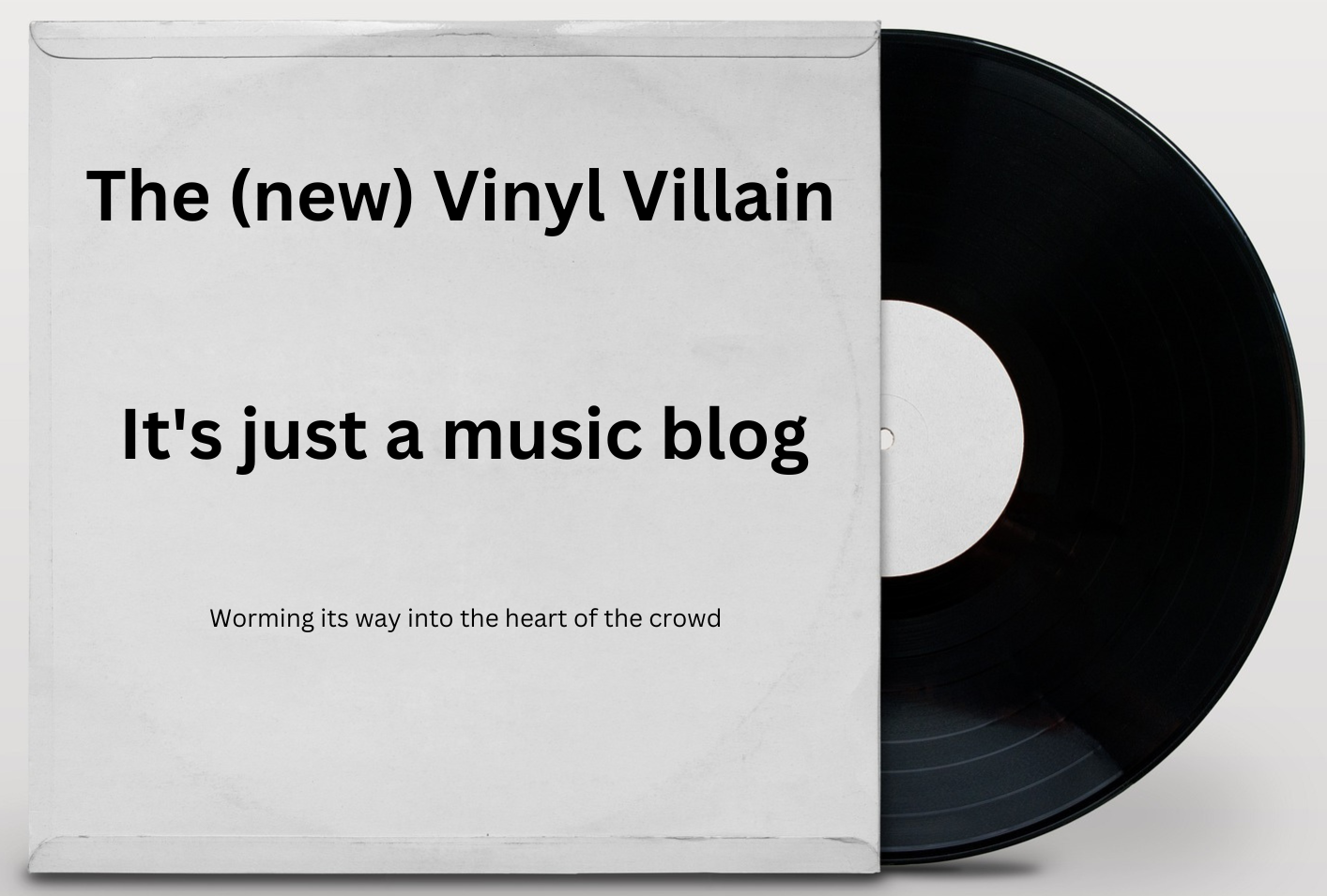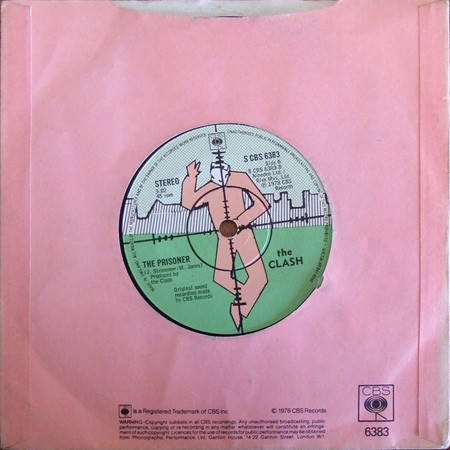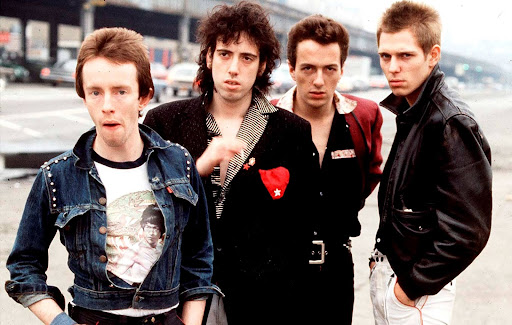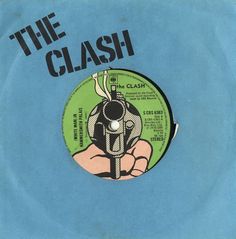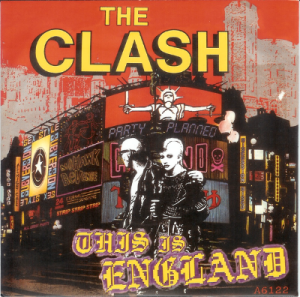
The top end of the first new chart of May 1979 didn’t unearth as many gems as recent weeks, but there was the appearance of a bona-fide disco classic to get the limbs all movin’ and a shakin’
mp3: Earth Wind and Fire with The Emotions – Boogie Wonderland
This proved to be one of the sounds of the summer. It came into the charts at #30 on 6 May and didn’t leave the Top 75 for 13 weeks, including seven in a row inside the Top 10. It even pulled off that rare achievement of looking as if it was going to start dropping out of the charts when it slipped from #4 to #5 after 7 weeks, only to go back to #4 in Week 8 of its stay.
Two other new entries worth giving a mention to are songs whose titles have a word in common and provided Swindon’s finest troubadours and one of Glasgow’s greatest exports with their first entries into the singles chart:-
mp3 : XTC – Life Begins At The Hop
mp3 : Simple Minds – Life In A Day
The former was a minor hit – in at #62 and peaking at #54. XTC‘s breakthrough was still a few months off. The latter came in at #67 and peaked at #62. Simple Minds would have to wait a further three years before they ever went Top 20.
Oliver’s Army had been one of the most surprising huge songs of early 1979, and just 7 days after had it finally dropped out of the Top 75 after 12 weeks, the follow-up entered at #71
mp3: Elvis Costello & The Attractions – Accidents Will Happen
An almost under-the-radar sort of hit in that it would spend 8 weeks in the Top 75, but never get any higher than #28.
A different type of new wave was the highest new entry in the chart of 13 May:-
The fourth single to be lifted from Parallel Lines came in at #10. Seven days later, it was up at #1, bringing an end to the six-week-long occupation of the top spot by Art Garfunkel. It was helped by a brilliant piece of marketing from Chrysalis Records with the inclusion of a French language version of the song on the 12″ release, one that I reckon was bought by just about every teenager and young adult who was infatuated with Debbie Harry.
One of my own favourites from all of 1979 entered the charts in the second week of May:-
mp3: The Clash – I Fought The Law
It was hard to believe this was a cover version, given how it captured The Clash at their post-punk finest. The lead track from The Cost of Living EP came in at #35 and then went up to #23 before falling back down to #32. But then, gravity was somehow defied as it went back up again over the next three weeks to #24, #23 and #22. Just imagine how big this would have been if The Clash had actually broken the habit of a lifetime and played Top of The Pops.
Coming in at #51 is one I have always considered as a bit of a classic:-
mp3: McFadden and Whitehead – Ain’t No Stoppin’ Us Now
The one and only song with which the Philadephia-based R&B duo of Gene McFadden and John Whitehead ever tasted success in the UK. The song, and later re-recorded/remixed versions, is reputed to have sold 8 million copies the world over. Both men would later die at young ages in the 00s. Whitehead was 55 when he was fatally shot outside his home studio in May 2004 – the perpetrators were never caught. McFadden passed away from liver and lung cancer in January 2006, aged 56.
Those of you who pay attention to the companion pieces to this series might recall that back in March, I looked at a flop single called Down In The Park.
“They had started out as a guitar-based new wave band, Mean Street, but the dawn of 1978 saw a change of name to Tubeway Army, albeit the new wave element was still to the fore (they supported The Skids at gigs in the summer of ’78). By the end of the year, a debut album had been released, with the lead singer changing his name from Gary Webb to Gary Numan, and looking to incorporate synths into the group. The album sold modestly, but there was enough interest at Beggars Banquet to fund a follow-up for planned release in mid-1979, and Down In The Park was seen as being the advance single. It didn’t sell very well, but things were about to change…”
The bottom end of the chart of 13 May 1979 was the first indication of said change:-
mp3: Tubeway Army – Are Friends Electric?
This is another one that I’ll always associate with the summer of 79. In at #71……it took until its 7th week in the charts to reach #1 where it would enjoy a 4-week stay, not finally dropping out of the Top 75 until September had come around. Turned out to be Tubeway Army‘s last single before breaking up, so it would be accurate to describe them as a one-hit wonder, albeit Gary Numan would enjoy solo success.
Looking now at the chart of 20 May, and the arrival of this tune made sure ‘one-hit wonders’ couldn’t be a label to attach to the doyens of Dunfermline:-
This came in at #29 and peaked at #14. Not quite as successful as Into The Valley, but it would prove to be the second-highest position The Skids would reach in their career, despite the fact that later singles would prove, in my opinion, to be better and more enduring.
Masquerade was one of 13 songs to enter the Top 75 in this particular chart, but none of the others are fondly recalled in any shape or form. Which takes us to the chart straddling the final week of May and the first few days of the month when I turned sweet sixteen.
mp3: Squeeze – Up The Junction
It’s now one of my favourite songs of all time, but it didn’t really ‘speak’ to me when I was a teenager. As I’ve written before when featuring Up The Junction on the blog:-
“A soap opera story in just over three minutes.
The boy about town gets caught out with his trousers down. He can’t cope with the fact that he has to grow up and take responsibility. The woman of his dreams soon moves on and all he has left are bittersweet memories.
A massive hit and one of my favourite songs of all time, albeit as a 16-year old I didn’t quite understand the full nuances. But now I’m 51 nearly 61 and I’ve seen it this story play out in real life far too often over the years.
Tears and saying sorry are just not enough.”
It came in at #50, and in an 11-week stay in the Top 75, would peak at #2…denied the top spot by Tubeway Army.
